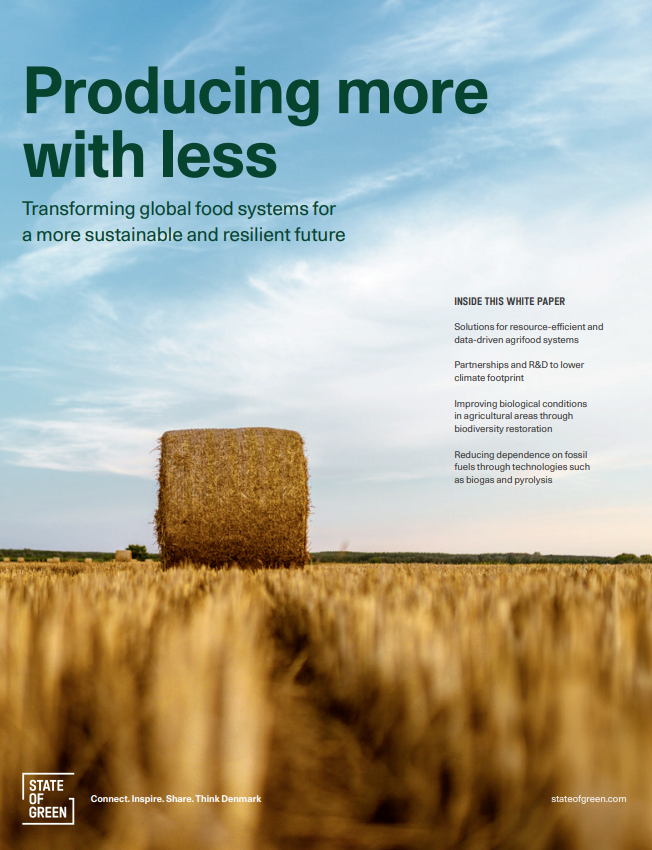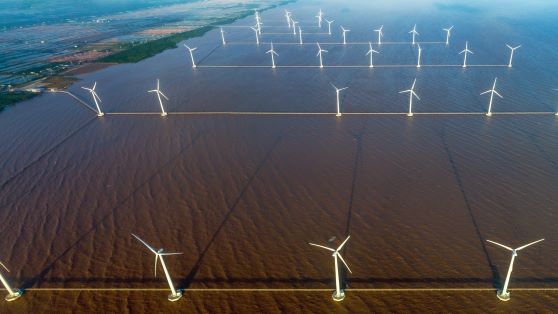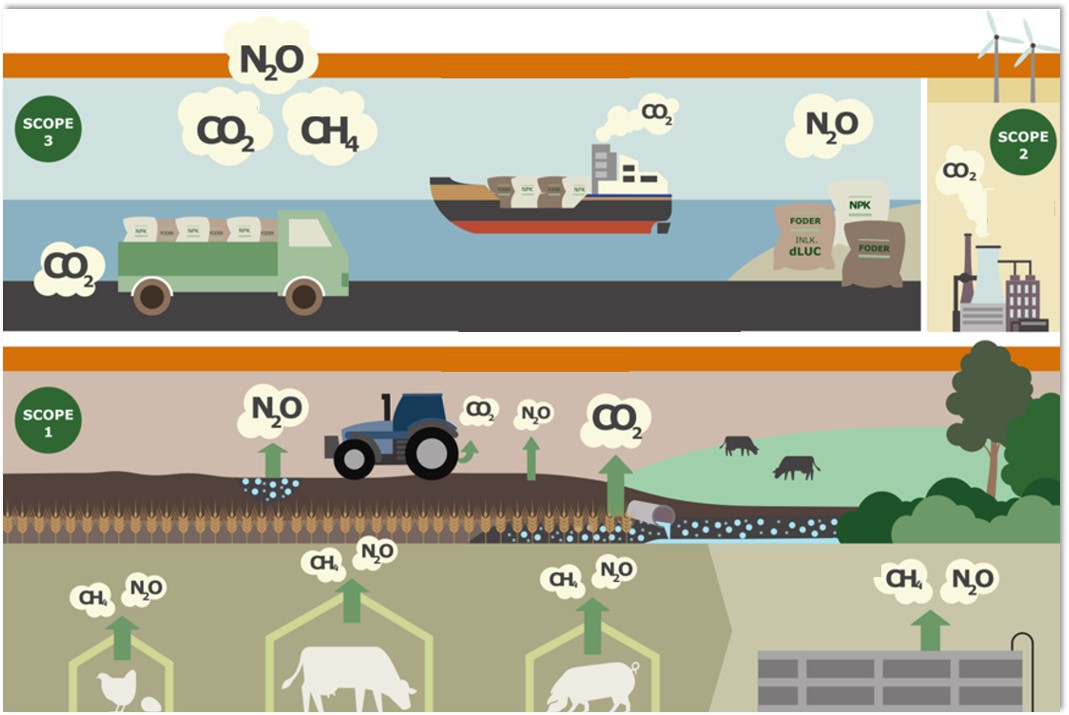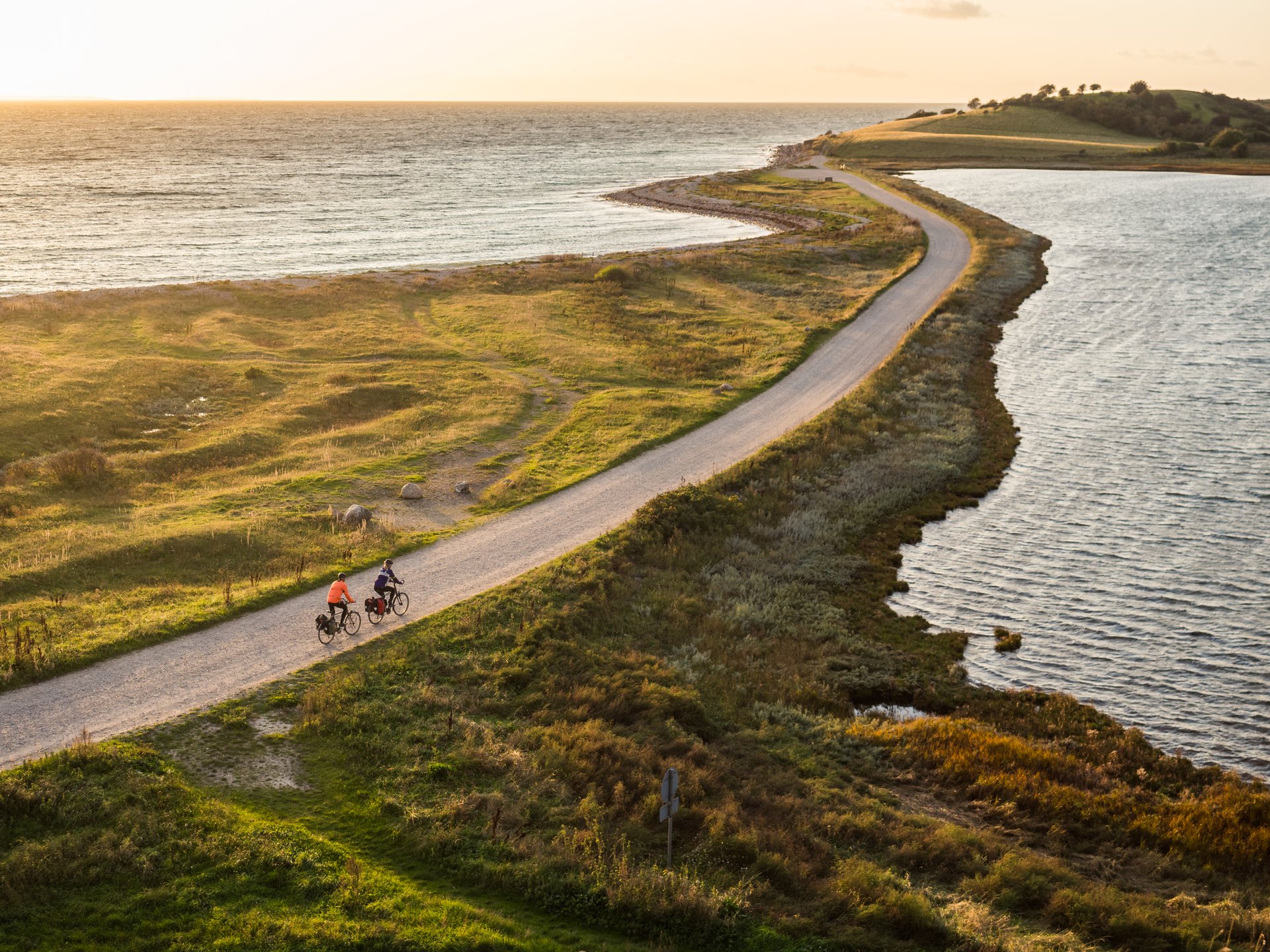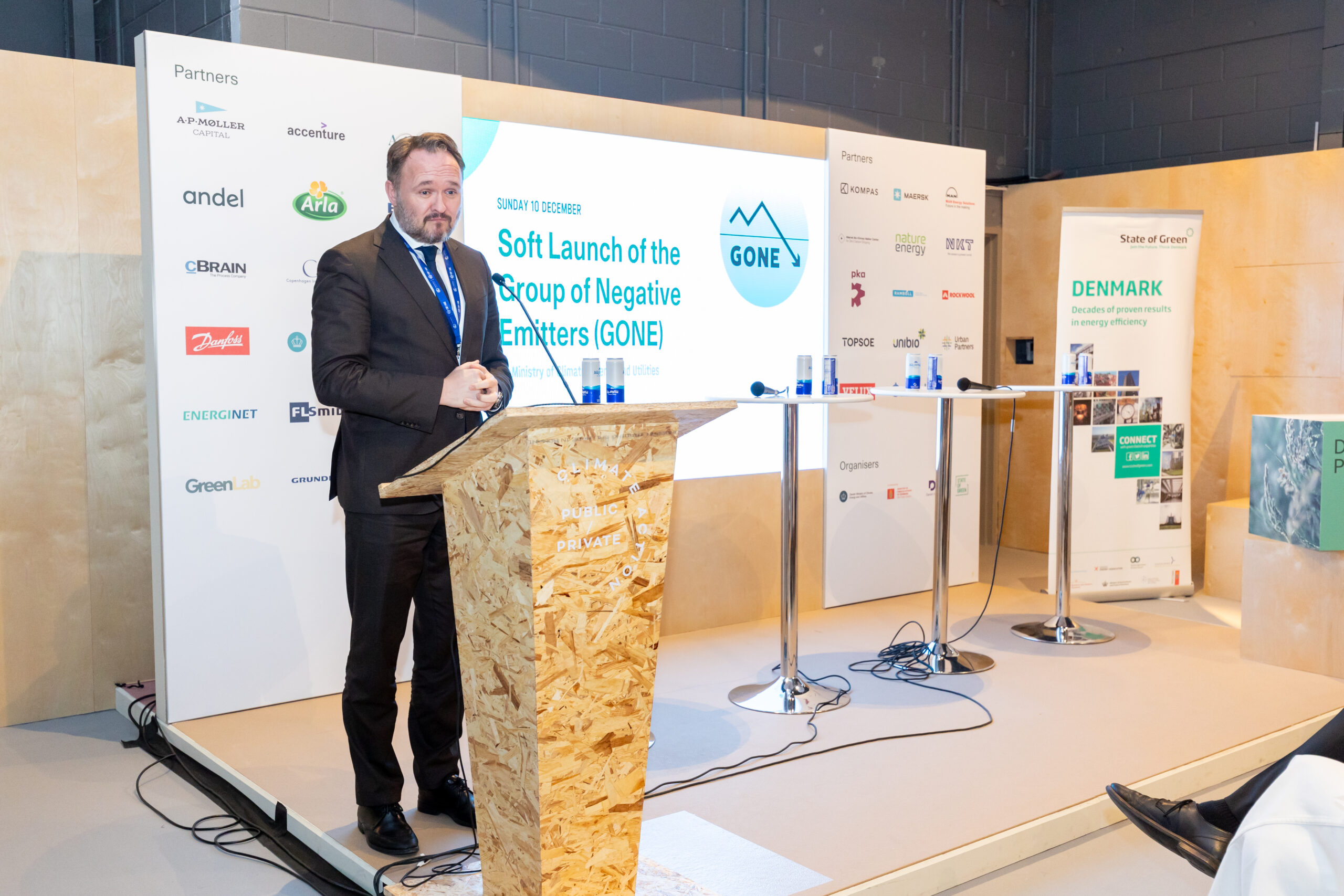News
Biomass
New method ensures sustainable production at sea


Hjarnø Sea Farm recently established a new zero impact sea farm by Endelave, which is based on a concurrent rainbow trout production, common mussel production and seaweed production. The project sets new standards for development of sustainable aquaculture.
Hjarnø Sea Farm has established a sea farm in open waters south of Endelave in southern Kattegat. The fine current conditions ensures that the nutrients released by fish production, are carried away and do not harm the neighbouring Natura 2000 area nor the nature at Endelave island. Fish farming discharges nutrients to the water environment, and to avoid unwanted environmental impact, farming of mussels and seaweed reduces this emission. The mussel and seaweed production actually removes the same amount of nitrogen as the fish production discharges. Hjarnø Sea Farm has three mussel rearings and one seaweed culture. They are placed close to the coast where production conditions are good and the positive effects of the nutrient removal is optimal. When the sea farm is fully developed, it will produce up to 2,100 t rainbow trout, 7,500 t common mussel and 700 t seaweed.
Per Andersen, section leader at Orbicon, underlines that both common mussels and seaweed are efficient in removing nutrients from the seawater. Common mussels nourishes by filtering the plankton out of the seawater. The mussels thereby removes large amounts of nutrients, including nitrogen and phosphorus when harvested. Mussels on rearing systems filter large amounts of seawater for plankton, and locally it gives an improved visibility depth. It also gives macroalgae and eelgrass better living conditions. The seaweed gathers nutrients dissolved in the seawater, and when the weed is harvested, the nutrients are removed.
Mariculture will contribute to a sustainable and valuable local production of marine products and is at the same time a part of the solution of a global problem in connection with the increased demand for marine products, says Per Andersen from Orbicon.
Orbicon has recently presented the method and the results on a conference organised by the British Centre for Environment, Fisheries and Aquaculture Science in cooperation with the Danish Environmental Protection Agency. This subject gets a lot of attention, since sea farming can contribute to meet the larger food demand caused by the global increase in population, provided it done in a sustainable manner. Endelave Sea Farm, with a concurrent production of fish, mussels and seaweed, appeared an innovative and sustainable solution for seafood cultivation.
Hjarnø Sea Farm is proud of the international appreciation of our sea farm production with fish, mussels and seaweed as an environmental sustainable solution, says Malene Mølgaard from Hjarnø Sea Farm.
You should consider reading
publications
Resource efficient production
+15
